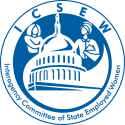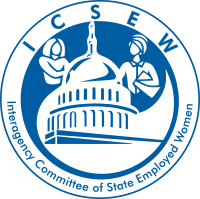New Guidance Requires Insurers to Cover Follow-Up Colonoscopies. Here’s What That Means for You

By Tammy Wild
Washington State Department of Health
The ICSEW Legislative and Policy subcommittee tracked a number of bills for the 2022 session, which included HB 1939 requiring health plans to cover, with no cost sharing, follow-up colonoscopies performed after a positive non-invasive stool test.
Due to a clarification of the Affordable Care Act (ACA), this bill was no longer necessary at state level and did not move out of committee. A recent recommendation by the U.S. Preventive Services Task Force, USPSTF, and clarification from the Tri-Agencies (the departments of Labor, Health and Human Services, and the Treasury) explained the process of a complete colorectal cancer screening.
The new guidance says private insurance plans are now required to cover follow-up colonoscopies after a private non-invasive stool test.
With this recommendation being considered on May 31, 2021, plans and issuers must provide coverage without cost sharing for plan or policy years beginning on or after May 31, 2022.
What does this mean for you?
If you are between 45 and 75 years old and are scheduling an appointment for your colorectal cancer screening, you have a choice. If you choose to first try a non-invasive stool test and it comes back positive, your screening is not complete. The next step is to schedule a preventative colonoscopy with no additional cost to you. The cost for required prep, anesthesia, and polyp removal are included in the preventative screening benefit.
To date, colonoscopies after positive stool tests were considered “diagnostic,” and not covered in the same full way a preventative screening would under the Affordable Care Act, according to the American Cancer Society’s Cancer Action Network. This policy does not include Medicare, which has not been updated to provide coverage of follow-up colonoscopies at no cost.
Excluding skin cancers, colorectal cancer is the third most common cancer diagnosed in the US, according to the American Cancer Society. The organization estimates 106,180 people will be diagnosed with colon cancer in 2022. It’s also third leading cause of cancer related deaths in the US. The American Cancer society recommends that people with an average risk of colorectal cancer start regular screening at the age of 45.
If you have questions regarding your coverage, reach out to your health plan. If you are not sure if you need a preventative exam, contact your primary care provider to initiate the conversation.
Useful links with more detailed information
- View the FAQs (see questions seven and eight on pages 11-12).
- View the American Cancer Society’s Cancer Action Network’s press release: New Guidance from Administration Helps Ensure Coverage for Follow-up Colonoscopies, Will Save Lives from Colon Cancer.

